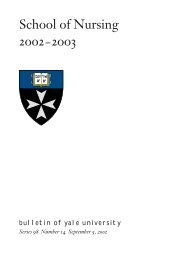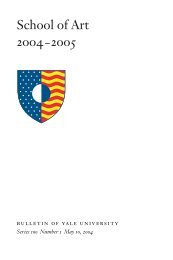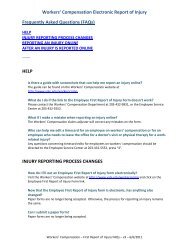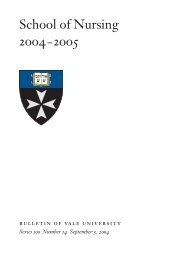You also want an ePaper? Increase the reach of your titles
YUMPU automatically turns print PDFs into web optimized ePapers that Google loves.
work and raised me only by luck. She would beg for food from her neighbors and friends,but it was never enough.” Not surprisingly more than half of the 122 street childreninterviewed in another street-children’s study in Mwanza also cited “hunger” as aprimary reason they left home (Rajani and Kudrati 1994:3).The anthropological literature on children clearly shows that throughout the worldthere are a “plurality of childhoods … stratified by class, age, gender and ethnicity, byurban or rural locations and by disability and health” (Jenks 1996:121-2; see alsoSeabrook 2001; Blanc 1994; Vreeman 1992; Reynolds 1991; Prout and James 1990; andAries 1962). Numerous cultural models of childhood differ from many present-day,North American or Western European middle-class ones. For instance many Africanchildren often begin to work at an earlier age and commonly spend lengthier periods oftime at a greater distance from their natal homes (see Panter-Brick 2000; Rwezaura 1998;Harkness and Super 1991; Reynolds 1991; Varkevisser 1973). In 1993-94 many peoplein Mwanza appeared to hold this same view of childhood. I often saw four- or five-yearoldchildren caring for younger siblings outside their houses or apartment flats. Veryyoung girls helped their mothers pick impurities out of rice and rinse laundry; boyscorralled wayward chickens and tended to goats or cows staked in their yards. Explained42-year-old Rose, a mother of 10, “Even before the children are old enough to go toschool they learn their responsibilities.” According to her, when they were young all ofher children had carried groceries, swept the compound, washed cooking pots, andcollected water because “even when their hands are little they can do many things.”Yet at the same time, argues laws scholar Bart Rwezaura, this image of child-aslaborerhas changed and expanded so that in diverse situations throughout contemporary9














